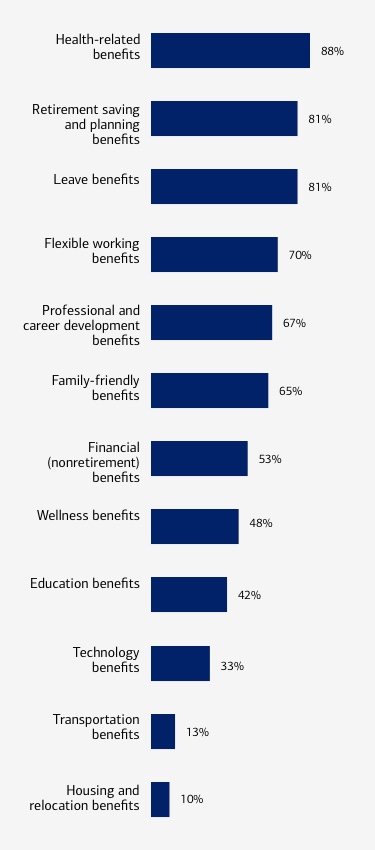What are employee benefits?
Benefits are an integral part of an employee’s compensation package that supplement the employee’s salary. They can range from financial incentives, such as retirement plans, paid holidays and health insurance, to nonfinancial offerings such as mental health services and employee recognition programs. While companies are required by law to offer certain benefits, others are optional.
Why are employee benefits so important?
It’s said that the most valuable assets companies possess are their people. After all, businesses depend on the skills and knowledge of their employees to compete. When potential employees are considering multiple job offers — particularly when the salaries are comparable — the benefits a company offers could end up being the deciding factor. Benefits can also help with employee retention, since if employees have benefits they value, they may be less likely to leave a company for a competitor.
One reason workers consider benefits to be valuable is because they often cover needs they would otherwise have to pay for on their own. For example, employees can save money on health insurance or student loan payments if their company takes care of some of those costs as a benefit.
To attract new workers and retain existing ones, “business owners need to prioritize benefits that are most important to their employees,” says Max Pearlstein, division vice president of Small Business Services Channel Sales for ADP®. “Think about how expensive it would it be if you lost either a prospective candidate or an existing employee because one of your competitors offered a benefit that you don’t.”



